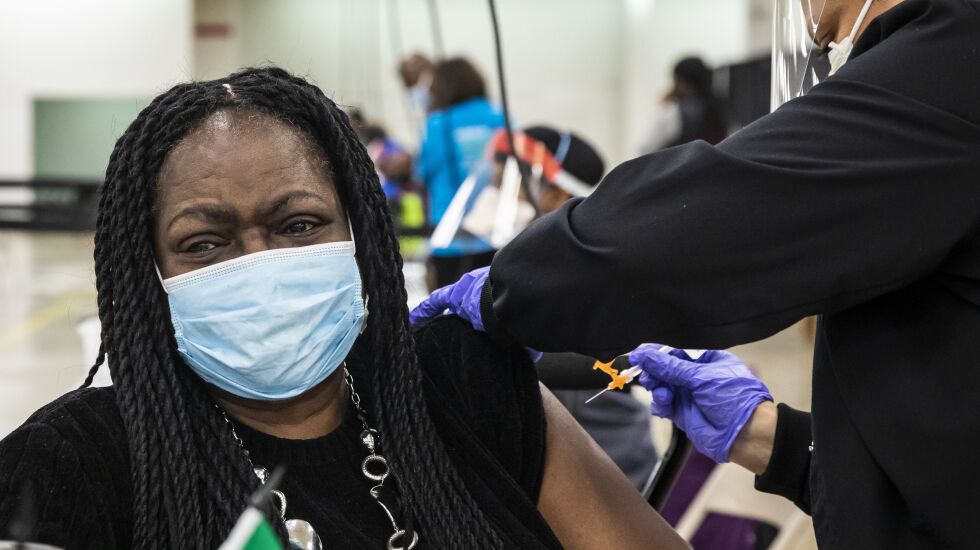
The new COVID-19 booster shots that target the strains of the virus that are now most prevalent should be available around Chicago this week, after the U.S. Centers for Disease Control and Prevention gave them the green light.
Here’s what you need to know:
Who can get it?
Anyone 12 or older who already has been vaccinated and whose latest coronavirus shot — the initial vaccination or a booster — was at least two months ago can get the new Pfizer Omicron booster. Those 18 and older can receive the new Moderna vaccine.
These are the two updated COVID boosters that are approved.
It doesn’t matter which one you previously got. People who got the Pfizer shots before can get the Moderna booster now, and those who got the Moderna vaccine can get the Pfizer booster.
This is a booster. So if you haven’t been vaccinated, you can’t get the new booster until after you have been.
When can I get it?
Shipments of the new vaccines have begun to arrive around the Chicago area. Check with your doctor, clinic or pharmacy. Walgreens pharmacies are scheduling appointments online for Wednesday and later.
For availability, you can check the Chicago Department of Public Health’s vaccine-finder page or vaccines.gov.
Why should I get it?
The new boosters should offer more protection against the newer, most prevalent strains of the Omicron variant of the virus.
Even if you’re “fully vaccinated” — having gotten the initial two shots and two boosters — the protection against the coronavirus wanes with time.
“Over time, vaccines become less effective at preventing infection,” says Dr. John Segreti, a Rush University Medical Center epidemiologist. “The hope is that it will be better at inducing immunity and preventing infections.”
How, where can I get it?
The boosters should be available at the same places that already have been providing COVID shots: doctors’ offices, health clinics and pharmacies, including Walgreens and CVS, which let you schedule your shot through their websites and encourage people to do so. People who walk in might be able to get the shots, too.
Will I have to pay for it?
No.
“The updated booster is available at no cost to any eligible patient either through insurance or if uninsured,” a CVS spokeswoman says.
If you’re insured, bring your insurance card to the vaccination site. If you’re not, you still will get the shot at no cost to you.
What if my vaccination card is full?
Don’t worry. You should be given a second one, where the new booster will be noted.
What if I have COVID now?
Once you’re done isolating after being infected, there’s no reason to wait to get the booster, doctors say.
Can I get a COVID booster shot and a flu vaccine?
Yes. In fact, depending on availability, you can get the two shots at the same time.
Will I need to get a shot every year?
“That seems pretty likely,” Segreti says.
Government health officials said Tuesday that, unless another COVID variant emerges, it’s likely that coronavirus boosters will be offered annually much like flu shots are administered.
Brett Chase’s reporting on the environment and public health is made possible by a grant from The Chicago Community Trust.







